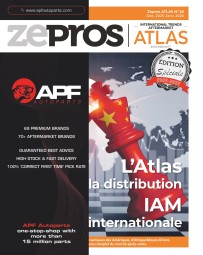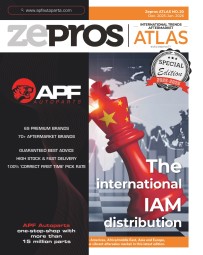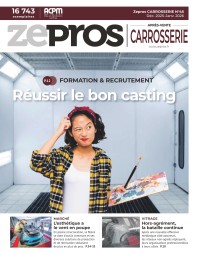
[Atlas] “LKQ Europe is focusing on its organic growth”
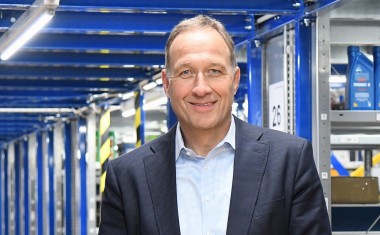
Arnd Franz is fine-tuning the consolidation of the group’s European positions before setting out to conquer any new territories. His priorities are a unification project called 1 LKQ and the launch of a programme focusing on new technologies.
LKQ Europe revealed a 6% drop in turnover (€4.52 billion) in 2020, caught back in the first nine months of 2021 with growth of 12.4%. How will 2021 finish up?
Arnd Franz: In view of the good performance we recorded in the first three quarters of 2021, we have reduced the range of the EBITDA margin of LKQ Europe in the third quarter to between 9.8% and 10.3%, raising the lower rate by 30 basis points. We will continue to focus on profitable growth and expanding margins sustainably.
Are you impacted by supply disruption from suppliers?
A.F.: Our size has helped mitigate cost increases and supply chain impacts. We set in motion proactive measures to deliver to our customers on time in the end. Because, while it is obvious that for many suppliers OE parts are often the priority, we are working closely with our major suppliers to ensure that they provide a good level of service for IAM.
Did you make any acquisitions in 2021?
A.F.: We have not made any major acquisitions, concentrating insead on the expansion of our existing Europen network. France is one example, where we have opened a new logistics centre in Toulouse which strengthens our network in France with four subsidiaries. Currently, LKQ is focused on organic and sustainable growth, with perhaps some small intermediate acquisitions in 2022.
Where are you in the implementation of your 1 LKQ Europe plan?
A.F.: At the end of June 2021, we completed the rationalisation of our organisation and so can now benefit from the scale and efficiency of more harmonised working practices, but with the clear intention of maintaining the local entrepreneurial spirit. This is just the start of the adventure.
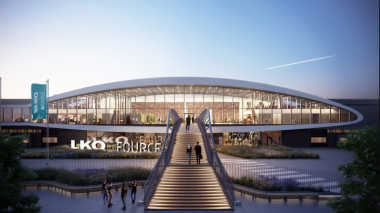
What are your plans for 2022?
A.F.: We will continue to invest in our European distribution network by taking advantage of consolidation in purchasing, by continuing to enrich the product catalogue, by deploying a common ERP system and our LKQ Academy online training concept. All this, combined with our digitisation strategy, will strengthen the competitiveness of LKQ Europe and prepare us for the challenges of IAM in the future.
How do you view the market in 2022?
A.F.: The secondary European market is expected to exceed 2019 volumes, with a slightly larger and older fleet. But with supply chain disruptions and raw material price volatility, many parts will continue to have a strong influence on the market, resulting in higher prices for the industry for both labour and parts.
What levers can you activate to counter stock shortages and price increases?
A.F.: Because the main challenge to ensure our growth is product availability, we will increase our safety stock levels and provide suppliers with more forecasts too. And regarding prices, even if we do our best to control them, we may not be able to avoid price increases in 2022. Our suppliers are doing everything to maintain their competitiveness.
Does access to data remain a key topic for you?
A.F.: Data is essential to foster healthy competition, innovation and provide better services. It must be available to the entire ecosystem with direct, independent, unsupervised and secure access. The more reliable the data we can collect, the more mobility we can ensure. This is crucial for the independent aftermarket but also for consumers.
Where are you in the digitalisation of your services?
A.F.: We are creating new digital solutions on a common technological platform through garage management systems, learning management systems and advanced digital portals for our BtoB clients. This collection of technologies will help us maintain our business and build customer loyalty. We plan to create a fully integrated digital experience for our BtoB clients.
What is your position when it comes to electrification across Europe?
A.F.: New technologies will not affect the independent aftermarket until the end of the decade. And even in 2030, fully electric vehicles will not exceed 4% of cars over five years old. However, we want to be at the forefront of the transition which will not only increase the complexity of the workshop, but also the need for newly trained garage staff. We are working on advanced workshop concepts, integrating spare parts and electric and hybrid vehicle equipment into our catalogue. We are developing new training concepts through LKQ Academy. We have also forged a strategic partnership with “Zukunftswerkstatt 4.0” [A German university research institute focused on the 4.0 workshop of the future] to accelerate innovation.
What about the concept of an energy mix?
A.F.: All available technologies must be put to use and not just electric. New generation ICE engines and those using alternative fuels such as hydrogen and biofuels can offer significant additional potential for CO2 reduction. These E-fuels will have to be made available for the 300 million diesel and petrol cars that will still be on European roads by 2030. This is the only way to meet the EU’s CO2 targets.

